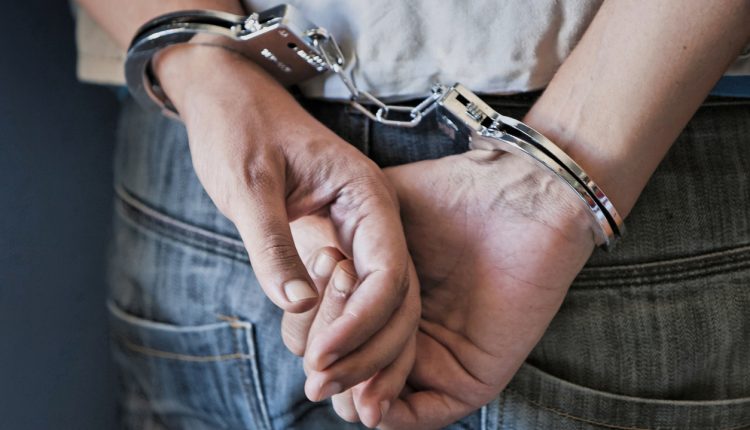A cross party group of MPs and Peers has called on the government to set up a national Anti-Illicit Trade Group, claiming this could bring in up to £5bn a year in excise duty.
The All-Party Parliamentary Group on Illicit Trade says that illicit trade cultivates organised crime activity and undermines legitimate businesses, harming consumers, jobs and the broader economy. The APPG claims that “a national strategy including an Anti-Illicit Trade Group has the potential to disrupt criminal supply chains while reclaiming billions for the taxpayer”.
The call for a group is made in the publication of ‘Illicit Trade in the UK’ by the Illicit Trade APPG. The report follows a formal inquiry, which involved business, consumer groups, law enforcement agencies and local and national government providing written and oral evidence to the Group.
Recommendations being made by the Illicit Trade APPG are:
- Create a UK Anti-Illicit Trade Group
Provide a forum for partnership coordination through dialogue, information and intelligence sharing, strengthening cross-organisational relationships and facilitating better use of resources through joining-up initiatives.
- Define and implement a UK national Anti-Illicit Trade Strategy
The first task of the UK Anti-Illicit Trade Group should be to facilitate the creation of a national Anti-Illicit Trade Strategy. The UK Anti-Illicit Trade Group can work together to define the outcomes that align with their respective organisations responsibilities. These outcomes form the vision of the future that the Group’s strategy seeks to deliver and provides the measures to determine the success of the Group’s function. A key element of the national strategy should be how national policy is prepared and explored where it affects illicit trade so that it is consistent and harmonised. A key benefit of the UK Anti-Illicit Trade Group would be that it could provide a single combined source for contributing to Impact Assessments of the effect of policies on illicit trade.
- Commission a UK Anti-Illicit Trade Group Lead
Empower a strategic lead to set up the Group, providing strategic focus, facilitation and implementation of the codesigned strategy. The lead would be responsible for building consensus, driving coordinated action, and monitoring and reporting against outcomes. A strong learning from the Scottish Anti-Illicit Trade Group is that senior political support is vital – providing a mandate for enforcement agencies to engage and the political will to change. The UK Anti-illicit Trade Group should have political backing at the highest-level with a Minister able to support and champion its work.
- Develop the knowledge base to support the UK Anti-Illicit Trade Group
Insight gained from the APPG inquiry provides a compelling case that the strategy must comprise focused, coordinated action for prevention, education and prosecution. To support interventions, a knowledge base should be developed and further validated and tested as part of the Group set up. As a first step, further validation work is required to:
- Develop market and consumer trend analysis capability: to better understand the drivers of illicit trade from a consumer perspective. Our survey shows that when asking what the prevalent perception is of consumers towards illicit trade, 48% of respondents said that this was an “opportunity to get equivalent goods for lower cost”. We need to better understand the patterns of consumer behaviour – where and how products are being purchased and what is driving this?
- Assess the scale of Intellectual Property Crime and the role of Organised Crime within it: working with organisations such as the Intellectual Property Office (IPO), HMRC and Police Scotland, building upon existing assessments to gain greater understanding of the threat, risk and harm of illicit trade to UK businesses, consumers and public health.
The report from the Illicit Trade APPG has been broadly welcomed by HMRC ministers and officials. Robert Jenrick MP, Exchequer Secretary to the Treasury, said: “Illicit trade costs the UK economy billions every year. I look forward to seeing how the APPG’s work can build on our existing efforts to crackdown on this type of trade, which denies vital funding for our public services.”
Matthew Offord MP, Chair of the Illicit Trade APPG said: “Illicit trade exists in every constituency, and as parliamentarians we have a duty to investigate what impact this has on consumers, businesses and our public authorities.
“The report is hugely important with implications for people all across the country, from small business, to the high-street shopper to the CEOs of major companies. Our witnesses and stakeholders all demonstrated significant consensus on what needs to be done and we’re delighted to see our recommendations being welcomed by the government.
Steve Carden, expert adviser to the Illicit Trade APPG, from PA Consulting, a global innovation and transformation consultancy said: “This inquiry sets out a positive, achievable plan of action for tackling illicit trade in the UK. It is vital that we develop a national strategy for illicit trade that has prevention, education and prosecution at its core. This is critical to educating all consumers about the reality and risks of illicit trade, whilst providing the consistent approach required across different sectors and all stages of the supply chain.
“Successful examples of tackling illicit trade exist and this report indicates that a UK-wide strategy can reap significant rewards for the British people.”
Julian Hunt, Vice President, Public Affairs and Communications from Coca Cola European Partners, sponsors of the APPG said: “The findings of this report are of huge importance to businesses – big and small alike. An Anti-Illicit Trade Group will enable businesses to work closely with the public sector to provide guidance to officials and help build capacity on enforcement.
The Implementation Working Group for the Soft Drinks Levy is an existing example of successful collaboration between government and businesses, and we hope an Anti-Illicit Trade Group can take this even further.”
(Source: APPG)




